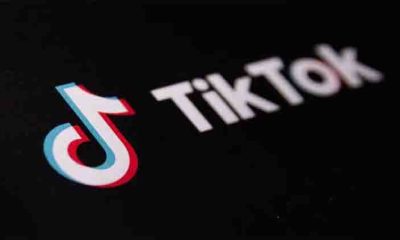To Facebook parent Meta Platforms Inc (META.O) and its lawyers at Gibson, Dunn & Crutcher, $925,000 isn’t a whole lot of money.
You might even say that a million bucks, give or take, is nothing more than “loose change” to a company whose annual earnings topped $115 billion last year and to a law firm that reportedly grosses more than $2 billion annually.
“Loose change,” in fact, is how US District Judge Vince Chhabria of San Francisco described the $925,000 sanction he levied against Meta and Gibson Dunn on Thursday in a class action accusing the social media company of harvesting and sharing users’ personal data without their knowledge or consent. Chhabria, as you’ve probably heard, ordered Facebook and its lawyers to pay that sum to plaintiffs’ lawyers as recompense for their bad-faith litigation tactics.
Even in the context of just this case, which Facebook agreed late last year to settle for $725 million, a $925,000 sanction – which is less than half of the $2 million requested by plaintiffs’ lawyers — hardly rates an asterisk.
But money wasn’t the point of Chhabria’s order.
The judge wanted to make an example of Facebook and its law firm to draw attention to what he considers to be a frequent problem in big cases: corporations and their lawyers using delay and obfuscation to wear down plaintiffs’ lawyers on the other side.
Chhabria’s message comes through most clearly near the end of the opinion, after the judge expended pages and pages detailing the many ways in which Facebook contested discovery requests from lead plaintiffs’ lawyers at Keller Rohrback and Bleichmar Fonti & Auld.
“Does anyone really think that Facebook was planning on taking this case to trial?” the judge wrote. “Or was Facebook, with the assistance of its lawyers, executing a different play from the playbook: resist discovery as long as possible, make things increasingly difficult and expensive and frustrating for the opposition, and hope that would drive down the case’s settlement value? This is, by far, the most likely explanation for Facebook and Gibson Dunn’s conduct.”
Some context is in order. Discovery in the case was so complex and contentious that the US magistrate judge who oversaw it urged both sides to engage a special master. And as I’ve previously told you during the year-long sanctions saga, after Chhabria first threatened Facebook and Gibson Dunn last February, the law firm has offered rationales and justifications for all of the discovery disputes in case. Gibson Dunn has insisted throughout that although the firm and its client litigated “zealously” as plaintiffs fished for a viable theory, they never violated a discovery order or failed to abide by instructions from the magistrate and special master. (It’s also worth pointing out that discovery had not yet closed when the two sides announced their settlement last year.)
Chhabria noted those arguments by Facebook and its lawyers, even acknowledging a ruling from the magistrate judge that rejected plaintiffs’ accusations of bad faith litigation to prolong one of many discovery fights. But the judge also stepped back from the minutiae of the battles over particular categories of evidence to look more broadly at Facebook’s litigation strategy.
What he saw, he said, was all too familiar: A big corporation and its high-priced lawyers pushed the outer limits of the discovery process with the goal of forcing plaintiffs’ lawyers to accept a discounted settlement offer just to end the misery of fighting endless discovery disputes.
“This is not to suggest that there necessarily was some back-room meeting at which Facebook and its lawyers said, ‘Ok, here’s the plan, let’s be as unreasonable and obstructionist as possible in the hope that we’ll frustrate the plaintiffs into settling for less than they could get if we were cooperative in discovery,’” Chhabria wrote. “Unfortunately, this approach to litigation is common enough that no such meeting was necessary. Facebook and its lawyers fell into their roles with ease, and then they took things way too far.”
Gibson Dunn and Meta both declined to provide a statement on Chhabria’s order.
Chhabria took pains to emphasize that the problem in this case was not thoughtless or incompetent advocacy. Quite to the contrary. In his view, Facebook and Gibson Dunn’s self-described zealousness was instead “a sustained, concerted, bad-faith effort to throw obstacle after obstacle in front of the plaintiffs—all in an attempt to push the plaintiffs into settling the case for less than they would have gotten otherwise.”
Chhabria delivered his reprimand on corporate litigation tactics with writing that’s irresistibly quotable, accusing Facebook and Gibson Dunn in the very first sentence of the order of “using delay, misdirection, and frivolous arguments to make litigation unfairly difficult and expensive for their opponents.”
Later in the opinion, in addressing Gibson Dunn’s assertion that class counsel were to blame for discovery delays, the judge offered a seething refutation: “No matter the conduct of the opposing party, counsel cannot twist their words—not to mention the words of the court—in support of frivolous arguments. They cannot resist the disclosure of obviously discoverable information. They cannot ignore potential sources of evidence, only for opposing counsel to learn about those sources at a … deposition near the close of discovery. They cannot treat depositions like fighting matches. And they cannot encourage their client’s obstinance.”
A relatively small monetary sanction is no salve for the sting of language like that – as Chhabria surely knows. If you are a corporate defendant or defense lawyer appearing in his courtroom, consider yourself warned.
Post Views: 41


 Fashion3 months ago
Fashion3 months ago
 Fashion3 months ago
Fashion3 months ago
 Sports2 months ago
Sports2 months ago
 Sports2 months ago
Sports2 months ago
 Fashion2 months ago
Fashion2 months ago
 pakistan2 months ago
pakistan2 months ago
 World3 months ago
World3 months ago






















